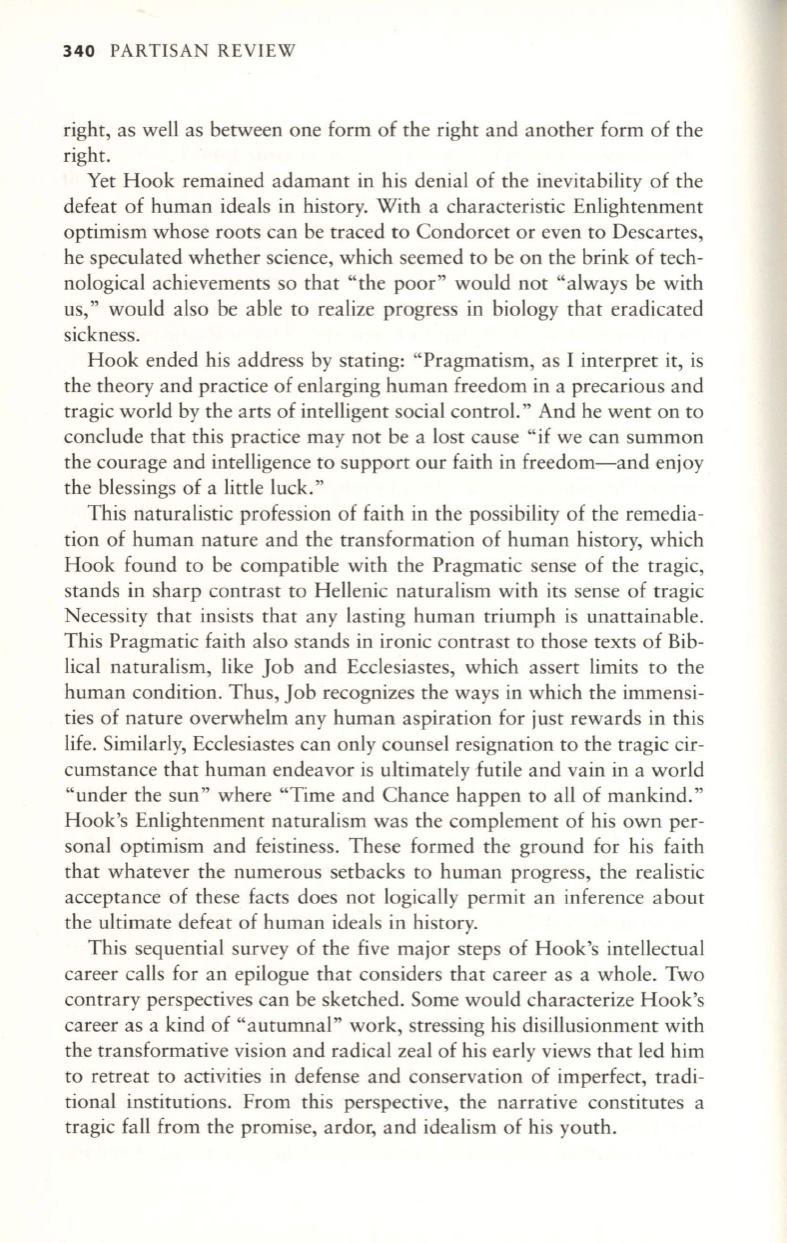
340
PARTISAN REVIEW
right, as well as between one form of the right and another form of the
right.
Yet Hook remained adamant in his denial of the inevitability of the
defeat of human ideals in history. With a characteristic Enlightenment
optimism whose roots can be traced to Condorcet or even
to
Descartes,
he speculated whether science, which seemed to be on the brink of tech–
nological achievements so that "the poor" would not "always be with
us," would also be able
to
realize progress in biology that eradicated
sickness.
Hook ended his address by stating: "Pragmatism, as I interpret it, is
the theory and practice of enlarging human freedom in a precarious and
tragic world by the arts of intelligent social control." And he went on to
conclude that this practice may not be a lost cause "if we can summon
the courage and intelligence to support our faith in freedom-and enjoy
the blessings of a little luck."
This naturalistic profession of faith in the possibility of the remedia–
tion of human nature and the transformation of human history, which
Hook found to be compatible with the Pragmatic sense of the tragic,
stands in sharp contrast to Hellenic naturalism with its sense of tragic
Necessity that insists that any lasting human triumph is unattainable.
This Pragmatic faith also stands in ironic contrast to those texts of Bib–
lical naturalism, like Job and Ecclesiastes, which assert limits to the
human condition. Thus, Job recognizes the ways in which the immensi–
ties of nature overwhelm any human aspiration for just rewards in this
life. Similarly, Ecclesiastes can only counsel resignation to the tragic cir–
cumstance that human endeavor is ultimately futile and vain in a world
"under the sun" where "Time and Chance happen to all of mankind."
Hook's Enlightenment naturalism was the complement of his own per–
sonal optimism and feistiness. These formed the ground for his faith
that whatever the numerous setbacks
to
human progress, the realistic
acceptance of these facts does not logically permit an inference about
the ultimate defeat of human ideals in history.
This sequential survey of the five major steps of Hook's intellectual
career calls for an epilogue that considers that career as a whole. Two
contrary perspectives can be sketched. Some would characterize Hook's
career as a kind of "autumnal" work, stressing his disillusionment with
the transformative vision and radical zeal of his early views that led him
to retreat
to
activities in defense and conservation of imperfect, tradi–
tional institutions. From this perspective, the narrative constitutes a
tragic fall from the promise, ardor, and idealism of his youth.


